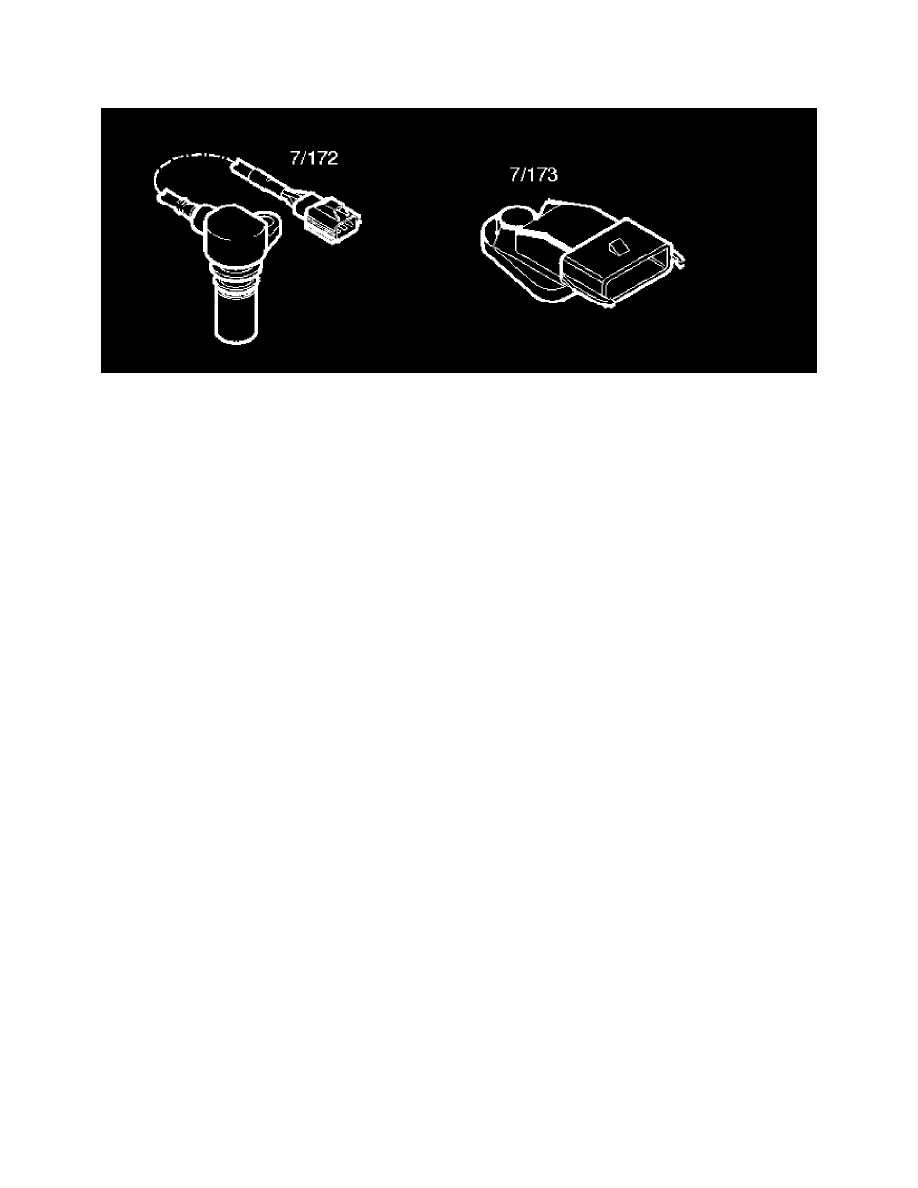XC70 L5-2.5L Turbo VIN 59 B5254T2 (2003)

Camshaft Position Sensor: Description and Operation
Camshaft Sensor
The function of the camshaft position (CMP) sensor is to detect the camshaft flanks. The signal from the sensor is used by the engine control module
(ECM) to determine the radial position of the camshaft.
Each camshaft has four flanks per camshaft revolution. A pulse wheel on the camshaft consisting of four teeth (the teeth are positioned by each flank) is
used by the camshaft position sensor (CMP) to detect the flanks.
The flanks are not symmetric on the camshaft. This allows the control module to determine which flank has been detected and therefore which operating
cycle the camshaft is in.
When the operating cycle of the camshaft is established, the control module is able to determine which cylinder should be ignited. In the event of misfire
or engine knock, the control module is also able to determine which cylinder is misfiring or knocking. Also see Knock sensor (KS) and Engine speed
(RPM) sensor.
Data about the position of the camshaft is used during camshaft control (CVVT). See Function.
The sensor, which is a magnetic resistor with a permanent magnet, is grounded in the control module and supplied with 5 V from the control module.
When one of the teeth on the camshaft pulse wheel passes the camshaft position (CMP) sensor, a signal is transmitted to the control module from the
camshaft position (CMP) sensor. The signal varies between 0-1 V and is low when a flank passes the camshaft position (CMP) sensor.
The camshaft position (CMP) sensor is positioned at the rear of the engine by the controllable camshaft (CVVT).
The engine control module (ECM) can diagnose the camshaft position (CMP) sensor.
